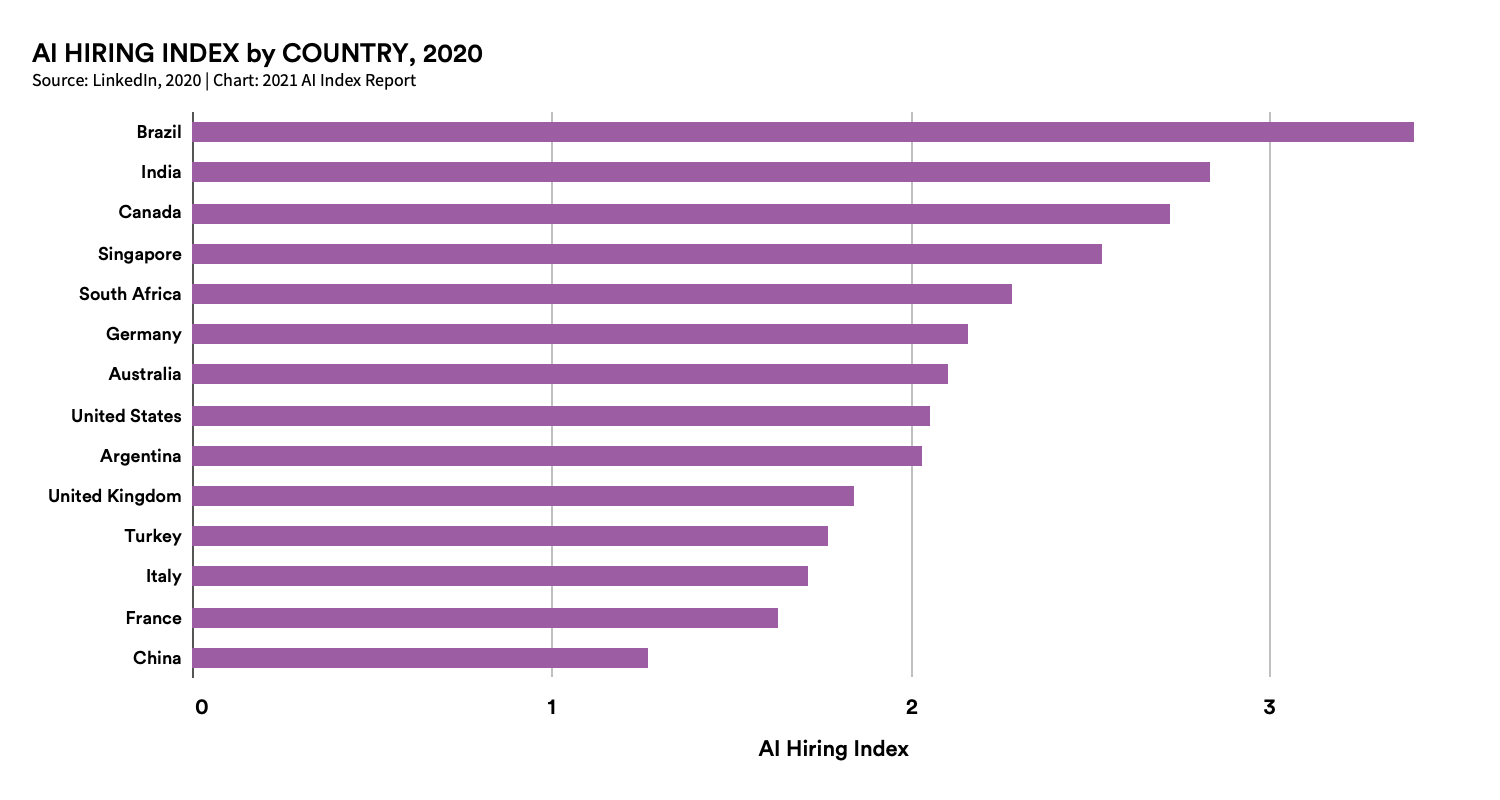2021 AI Index Report, JP Morgan & Data Science, Custom GPT-3 by OpenAI, and more
"Did you know the number of AI journal publications grew by 34.5% from 2019 to 2020?" Putting forward more such stories in this week's catch-up.

Introduction:
Welcome to our latest Newsletter, published twice every week in an attempt to bring summarized informative artifacts and the latest developments from the field to data your mailbox!
Engage in to know more.
Articles:
- 2021 AI Index Report
Artificial Intelligence Index, Stanford Institute of Human-Centered Artificial Intelligence publishes its 2021 report. Their mission is to provide sourced data for everyone to develop data-supported intuition about the complex field of AI. “The report aims to be the world’s most credible and authoritative source for data and insights about AI.”
The fourth edition incorporates the effects of COVID-19 on AI, Country comparisons and brings in improved technical performance and data diversity as compared to the past editions.
One of many insights- “Brazil, India, Canada, Singapore, and South Africa are the countries with the highest growth in AI hiring from 2016 to 2020”.Despite the pandemic, AI hiring continues to grow.

- Podcast: Analysis of the 2021 AI Index Report
Although, the index report is quite a long read, but is relevant for at least the people in this space to familiarize themselves with. A breakdown of this report is covered by Chris and Daniel in their podcast by Changelog. They explore the key findings and discuss that in this fully connected episode. - Podcast: Data Science for Intuitive user experiences
Another, episode by Chris and Daniel joined by Nhung Ho laying out important points about how data science creates insights into financial operations and economic conditions. They involve various topics such as 'predictive forecasting to aid small businesses' and much more.
Design for Delight: Nhung Ho introduces her company's approach to doing data science for customer experience, that is by really getting into the minds of the customers and understanding what are the most important problems they have.
This system involves a lot of customer interviews and working with customer experience researchers to gather the customer reviews of the product.
“What do they wish that you actually had that would make their lives a lot easier?” is another piece in assessing the problem
After understanding the area of the problem, “Okay, what are some of the hypotheses that we have in creating the solution?” is asked to further create the MVPs (minimum viable products).
In the past 3-4 years the company pivoted from 'customer approach' input to a more 'customer feedback' input after running the data through the model, which made the feedbacks richer.
"It actually helped us narrow in on the right solution, and it was just like – you know, this a-ha moment for me that I guess it’s obvious now, but was not obvious back then."
News:
- JP Morgan: harnessing the power of data science to amplify expertise in fundamental investing
JP Morgan launched its first mutual fund implementing a data science-driven investment process. The firm has been working towards this combination of fundamental investment management and data science that represents the collaboration of data scientists, fundamental analysts, and technologists for some time which is now brought into application. - OpenAI: Customizing GPT-3 for Your Application
OpenAI announced the ability to create a custom version of GPT-3, a model that can generate human-like text and code. “With fine-tuning, one API customer was able to increase correct outputs from 83% to 95%. By adding new data from their product each week, another reduced error rates by 50%.” - Machine Learning speeds up vehicle routing by MIT
The previous heuristic or learning-based works in Vehicle Routing problems achieve decent solutions on small problem instances of up to 100 cities, their performance deteriorates in large problems. Professor Cathy Wu and her students have come up with a machine-learning strategy that accelerates some of the strongest algorithmic solvers by 10 to 100 times.
Tweets:
- By @gideonmann
Human vs AI is visceral but Human+AI is more important: the tech simply isn't good enough yet. But also, there are a lot of places where we need a little help. "Restorative AI" is one of my enduring bets. Here's another neat example.#plusmodernhttps://t.co/c9aRiWArhO
— Gideon Mann (@gideonmann) October 20, 2021
- Conversation by @AndrewYNg
How would you define Data-centric AI development? It'd be useful for all of us collectively to write a sharable definition. Here's my attempt: Data-centric AI is the practice of systematically engineering the data used to build AI systems. What do you think/any suggestions?
— Andrew Ng (@AndrewYNg) September 29, 2021
- By @mrogati
A question I ask to prioritize data projects:
— Monica Rogati (@mrogati) November 24, 2021
'Imagine you're done. It took 4 months. It works OK. Now, what metric has improved? By how much? Was it worth the effort & opportunity cost?'
More on assessing impact from @jikechong & @yuec's book on leading in data science: pic.twitter.com/t9BLgsBgK8
Conclusion
We hope this newsletter brought some informative content to your attention, for more such content from the world of data - consider subscribing.
Until Next Time!



